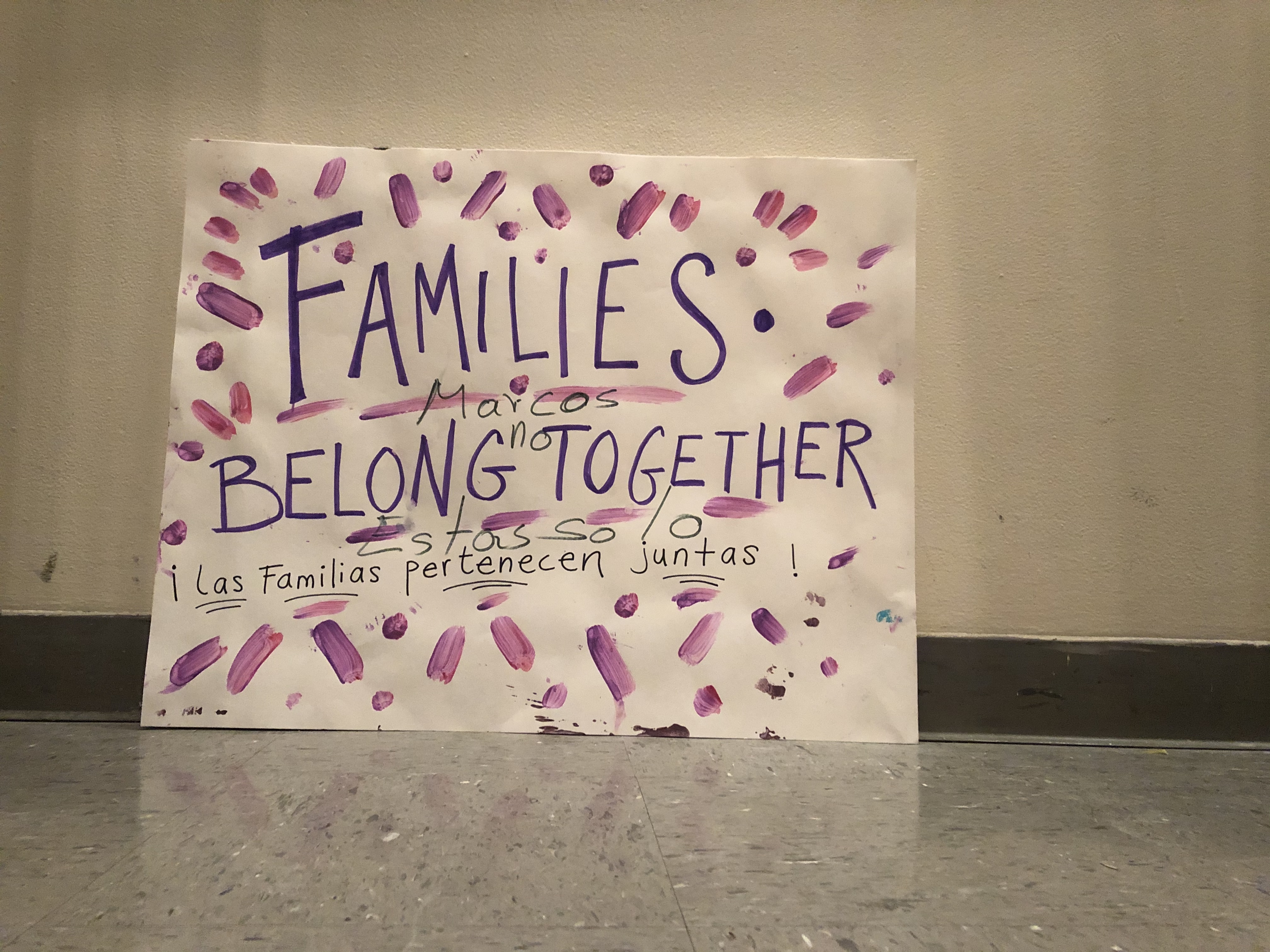A crowd filed into the Alvin Johnson/J.M. Kaplan Hall on Nov. 6 for a screening of “The Infiltrators”, a hybrid documentary depicting the hard work and risks taken by a group of young undocumented activists in 2012. In the film, real footage of the activists is combined with dramatizations, since there was no way to record inside detention centers.
The documentary follows the stories of Viridiana Martinez and Marco Saavedra, two young undocumented immigrants who were purposefully detained by ICE in an attempt to stop the deportations of others. Saavedra was also a member of the Dream 9, a group of undocumented youth who self-deported and then, in 2013, walked from Mexico to the United States border to demand asylum.
Both Saavedra and Martinez stayed at the Broward County Immigrant Detention Center in Florida, which held 600 men and 100 women, and was managed by the for-profit GEO Group.
As the film progresses, Saavedra forms alliances with other men inside the detention center and comes up with a system to get detainees in contact with the National Immigrant Youth Alliance. In some scenes, the documentary takes on the tone of a heist film, as Marco and his team sneak around the prison handing out tiny slips of paper without being noticed by the guards.
When the first detainee, Ismael Garcia, is successfully released, the entire audience burst into applause.
Unlike many documentaries that place a firm wall between directors, subjects, and actors, “The Infiltrators” was at every step of the way a collaboration. The directors, Christina Ibarra and Alex Rivera, worked closely with Saavedra and other subjects in order to ensure it told their story as accurately as possible.
“Usually documentary subjects aren’t allowed to see rough drafts, or cuts of the movie, or be on set, but we were given all of those liberties because we wanted this to be very much an open and engaged relationship,” Saavedra told the New School Free Press. “It’s been really humbling to see myself portrayed in the film.”
“The Infiltrators,” although deeply emotional and dealing with serious subject matter, still managed to have a number of funny moments. When one of the women detainees is crying in her bunk, Martinez asks her what’s wrong.
Her eyes full of tears, she says, “My husband is out there and here I am thinking about my chihuahua.”
These scenes offered the audience some relief, while representing the dynamics at play inside the detention center. Although the film ends victoriously with both Saavedra and Martinez reunited with their loved ones and a great number of their fellow detainees released, their fight is still far from over.
“A few of the people that you see in this film have fixed their status permanently, but a lot were released under parole, prosecutorial discretion, and different instances of deportation relief,” Saavedra said. “So for some of them, their cases are still open and could still be points of target for the Trump administration.”
By holding a screening of the film here at The New School, the organizers hoped that students might be inspired to become more involved in advocating for immigration rights. Although The New School is not a sanctuary campus for undocumented students, there is an active Sanctuary Working Group that has been working hard to create a more safe space, and helped to organize the screening event on Thursday.
“It was incredible to see so much support from the community at the screening. A standing ovation after the screening was a testament of how Marco and his family’s activism have touched so many lives,” said Alexandra Délano Alonso, an associate professor of Global Studies and organizer of the Sanctuary Working Group.
“It’s also a recognition of Marco’s activism and the risks that he has taken by infiltrating a detention center and then self-deporting to Mexico, with the unwavering belief that there is no justice and no peace unless the rights of all immigrants are protected and the system of mass incarceration is abolished.”
The screening was followed by a panel discussion, in which audience members were welcomed to the stage to ask questions of Saavedra, his mother, and Claudia Amaro, another member of the Dream 9.
The energy was infectious, with people snapping, clapping, and cheering after every question. Saavedra’s comments brought tears to many audience members’ eyes, and there wasn’t a single moment of the evening that wasn’t charged with emotion.
“He is an inspiring, selfless individual with astounding clarity of conviction,” Alonso said. “His reciting and interpretation of Langston Hughes’s ‘Island’, in English and Spanish, after the screening was a powerful reminder of the hope, strength and political imagination that push the fight for justice ahead even in the most dire of circumstances.”
‘Island’, although only eight lines long, is a poem with a message of hope and resiliency. Saavedra, in both English and Spanish, read the following: “I see the island and its sands are fair: wave of sorrow, take me there.”
Saavedra hopes that the energy his story brought to our campus will not die out, and that students at The New School will continue to pay attention to immigrant rights issues.
“Universities and university students have a long history in every social movement, even though you might be cash-strapped students,” Saavedra said. “The world is always changing, and the world always needs fearless leaders and people to act on new ideas.”
Saavedra went before Judge Sam Factor on Nov. 7 to present his case for political asylum around 8 a.m. He was joined by family and community members who rallied around 26 Federal Plaza, holding up hand-painted signs that read “Families belong together” and “Nos han quitado todo hasta el miedo.”
The judge will reach a final decision by Jan. 17, 2020.







